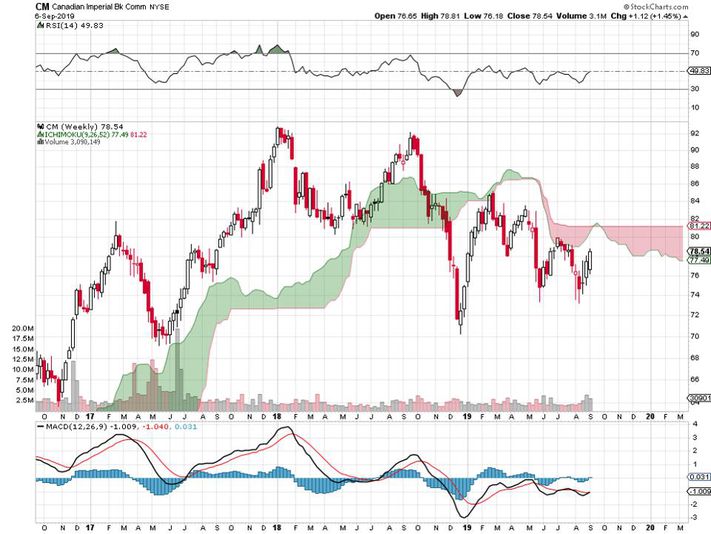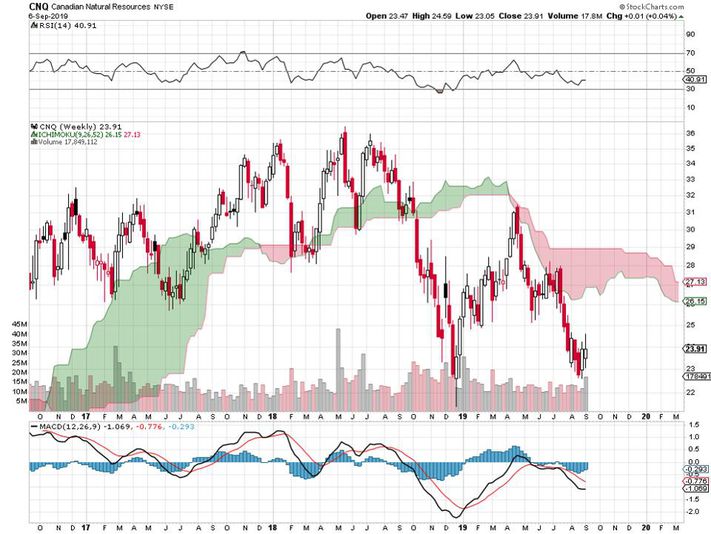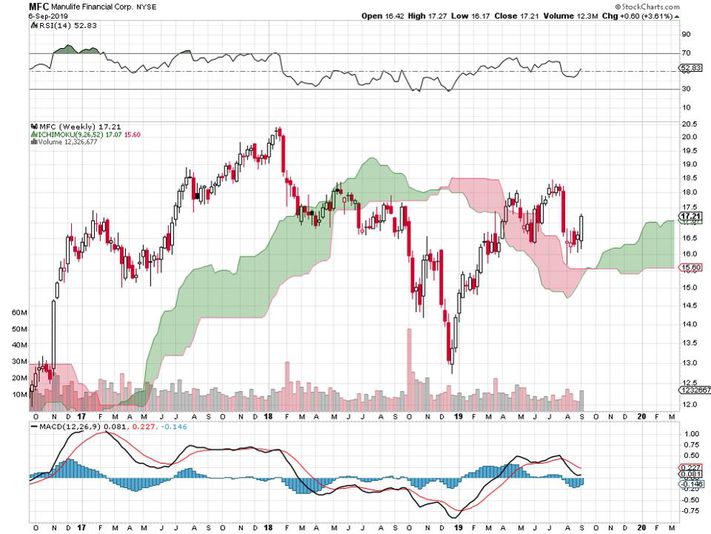
(Forbes) If you run a screen for NYSE-listed stocks with lower than the market price/earnings ratios and which pay dividend yields greater than the U.S. 30-year treasury yield, you would find these 4 that seem to fit – each one based in Canada.
This screen skipped any stock that might be described as “amazing growth” and simply focused on those with positive earnings records. These are not recommendations, just food for thought – and more extensive research – if you’re a Benjamin Graham-oriented value freak.
Bank of Montreal started the year at 64, made it up to 79 by the beginning of May and has now declined back to 69. The price/earnings ratio of 9.8 is well below the S&P 500’s multiple at 21 right now. The bank is trading at just above its book value. Earnings are good this year and the 5-year track record is positive.

Bank of Montreal is paying a dividend that comes to a 4.4% yield. Long-term debt exceeds shareholder equity, something that requires a more thorough look. The average daily volume is relatively light at 488,000.
Canadian Imperial Bank of Commerce trades with a price/earnings ratio of 9.1 and at slightly higher than book value. This bank’s been in business a long time: since 1867 in one form or another.

The earnings look positive for this year and the same over the past 5 years. Shareholder equity is greater than long-term debt. CIBC pays a 5.5% dividend yield. This is another one relatively lightly traded for an NYSE stock – average daily volume is 440,000.
Canadian Natural Resources Limited is an independent oil and gas business with headquarters in Calgary, Alberta. The stock kicked off 2019 at the price of 22 and now trades for 23 after climbing as high as 31 in April. Canadian Natural Resources trades at a price/earnings ratio of 7.9 and it’s another one at just above book value.

The earnings are positive for the year and for the past 5 years, but analysts are worried about next year. Recent quarter-to-quarter sales were off. The company’s long-term debt exceeds shareholder equity, a good reason to examine it closely. The dividend yield is 4.77%.
Manulife Financial Corporation is a life insurance company based in Toronto and now trades at exactly its book value with a price/earnings ratio of 8.4. Earnings this year have been very good. The 5-year earnings record looks good as well.

Shareholder equity is a larger figure than that of the company’s long-term debt. Investors receive a 4.3% dividend yield. Manulife’s website says “We operate primarily as John Hancock in the United States and as Manulife elsewhere including our headquarters in Canada…”
These may or may not be value stocks, but they seem to fit some of the basic criteria with the cheap p/e’s, the steady earnings and the dividends. Generally, analysts consider these types of businesses to be limited in the potential for earnings growth, so they trade with these low multiples.
Stats courtesy of FinViz.com.



